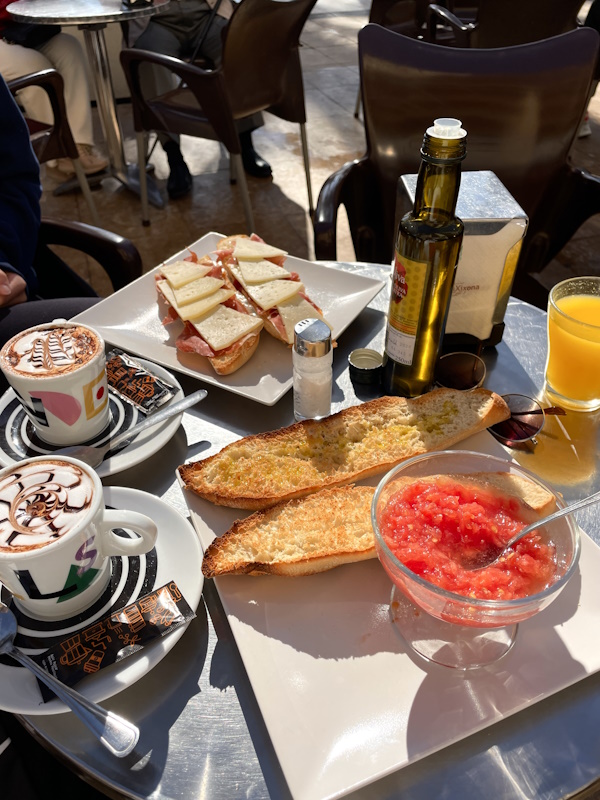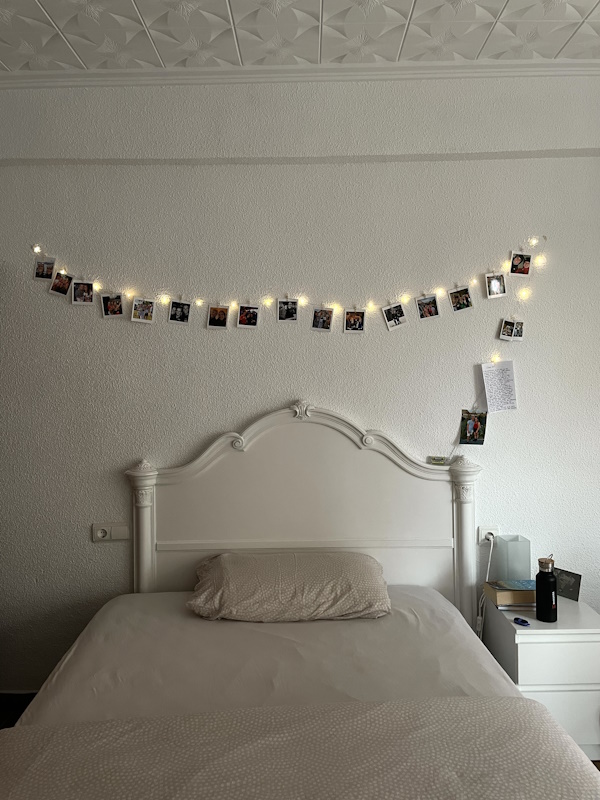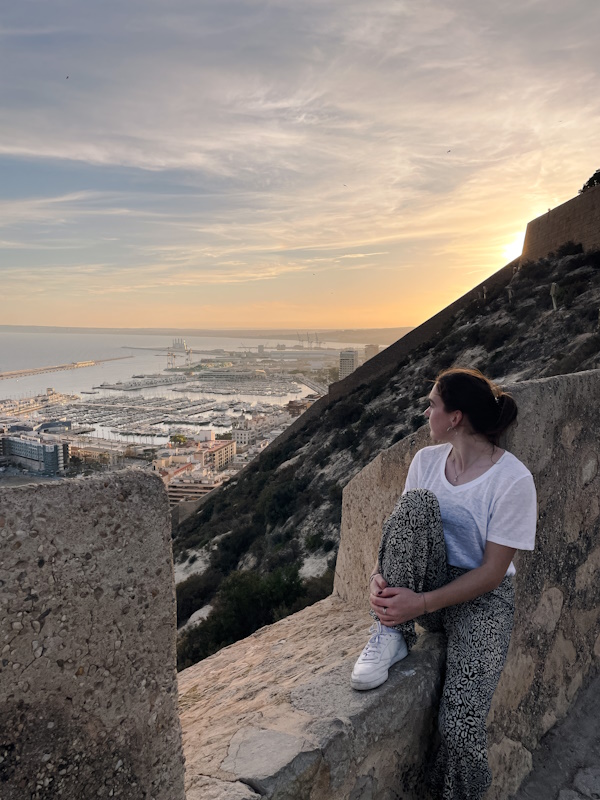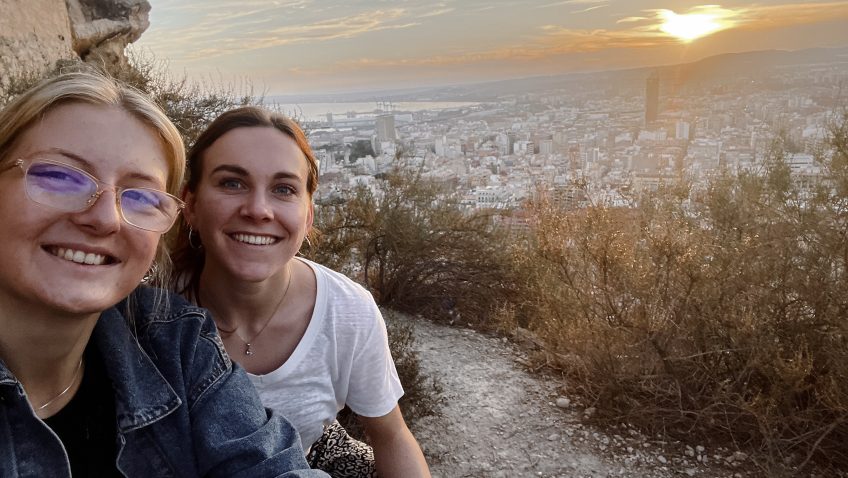Every year, more than six hundred students from Windesheim go abroad for a six-month study, internship or project. There are many things involved in the preparations. “Anyone who wants to go abroad in 2025 should start orientating now.”
Japan, Georgia, Canada, Chile, Bangladesh, Gambia, Panama, South Korea: students travel to all corners of the world. However, the majority of them simply stay in Europe. Within our own continent, Spain, Italy, Germany, France and Scandinavia are particularly popular. First some numbers. This academic year, 279 students opted for a semester of ‘study abroad’, at one of Windesheim’s many partner universities. 133 students went (or are going) on an internship outside the Netherlands and 109 students followed a ‘blended intensive program’, a short mobility program with a stay in another country. There is also a group of students who go abroad for a project, excursion or Summer School. There is also the minor International Sustainable Development (ISD).

Start on time
The most important part of the preparations, emphasizes Daphne Kok of the International Office, is to start on time. “For students who are leaving for a six-month study abroad program in February 2025, now is the time to attend information sessions and orientate on the digital world map with an overview of partner universities.” Registering and communicating preferred destinations must be done before the summer. Students will be told where they can go in September.
Daphne: “We sometimes still receive emails from students who want to study abroad after the summer. Well, they are really too late.” This deadline is less strict for internships; students can still sign up at their study program shortly before leaving. Although an application for a grant for a non-European country (2,500 euros) must be submitted three months in advance.

The ‘international coordinators’ within domains organize information rounds for students in the orientation phase, and the International Office also organizes the Go Abroad Fair twice a year. “We answer general questions there, such as how does everything work, what should I think about, how should I register, which grant can I apply for?”
Cultural differences
Windesheim believes it is important that students delve deeper into the country and culture they are going to. Students who study abroad for a semester must therefore follow the WISE module, which stands for Windesheim Intercultural Skills Explorer. Daphne: “It’s all about intercultural competencies and which skills should the student develop? For example, students have to do an interview with a ‘local’ about cultural differences in the country they are going to.”
“The International Sustainable Development minor also emphasizes how students relate to people from other cultures,” says coordinator Peter Smid. Every six months, approximately 60 students from the ISD minor go abroad to contribute to a local project focused on sustainability. For example, building houses from recycled plastic in a township in South Africa or a solar energy project for households in Gambia.
Learning to interpret cultures
Students do not just leave, with the ISD minor they are first presented with a three-week educational program in which (in addition to the WISE module) topics such as anthropology, sustainability and collaboration are discussed. Peter: “A student must actually apply for a specific project, including a letter with CV and a recommendation from his or her study supervisor.” Students then make contact with the group that came before them so that they get a better idea of the project and the circumstances.
“They also write a project plan, in which, in addition to the sustainable development goals (SDGs), the inner development goals are also discussed,” says Peter. “How are you going to develop? Our rule for students is: first insert and then add. We want students to understand other cultures. That they wonder: how come the women here do everything? Without immediately passing judgment on it.”
Visas and vaccinations
“Students have to arrange practical matters such as a visa and vaccinations (if necessary) themselves,” says Daphne. Just like certain specific documents and accommodation, although this is often done in collaboration with the partner university or internship company.
The International Office keeps an overview of who is where on behalf of Windesheim. “Even for a short excursion to Berlin, for example, a student or employee must register,” Daphne explains. “This way we can quickly make contact in the event of an emergency.” Before departure there is the ‘pre-departure meeting’, where the last things are discussed. Daphne: “Then we also talk about safety and insurance. We always advise students to keep a close eye on the news and to sign up to the Ministry of Foreign Affairs app that provides information about emergencies and whether the travel advice for a country, the so-called color code, changes.”
With a drink on the street
“We also give students very practical advice,” says Peter. “Never go to demonstrations, because they can get out of hand. Make sure you are properly insured, do not buy meat at the market.”
“And behave according to the standards of the country,” Daphne adds. “For example, Windesheim has a partnership with a university in the United Arab Emirates, where different rules apply. Women have to cover up more and walking down the street with a drink is not common. In short, learn about local customs and treat the culture respectfully.”
Text: Wouter van Emst
Photos: Kim Scholte in ‘t Hoff
Kim in Alicante: ‘Cheese slicer and chocolate sprinkles’
Journalism student Kim Scholte in ’t Hoff is studying in Alicante, Spain until the summer. She writes blogs about this for the WIN website, this first one is about her preparations.

‘Of course, before I left I had to arrange a number of things, such as accommodation. I could choose a room opposite the university, but the disadvantage is that the campus is a long way outside the city. That’s why I chose a shared flat in the center. I found it via Facebook, but it wasn’t easy. I had found a nice apartment, but….
Scammed?!
After good contact with the landlord and one of the current residents, I paid one month’s rent as a deposit. However, I then received a call from my bank: my transaction turned out to be very suspicious! No customer had ever transferred money to this Spanish account before. I was shocked and very disappointed! So I asked the landlord to make a video call so she could show me the apartment. She thought it was strange that I didn’t trust her. Fortunately, the photos matched the images one hundred percent.
Video calling is therefore the best way to check whether something is reliable.
Cheese slicer
It is useful to think carefully about what you take with you. Because while in the Netherlands you see a cheese slicer in the cutlery drawer in almost every home, that is not the case in Spain. That’s why my friends gave me one as a present. Do you have more of a sweet tooth? Don’t forget to bring chocolate sprinkles! Because I haven’t seen that on the shelves here either.
Trip to Morocco
To make the most of your time, it is useful to delve into things that you must have seen. I have made a list of beautiful beaches, sights, restaurants, hike routes and towns around Alicante. The number one place I really want to see is Morocco. It is only an hour by boat from the southernmost tip of Spain, and less than a two-hour flight from Alicante to Marrakesh.
My one last practical tip: print photos of family and friends before departure. This way you always have them with you!’
